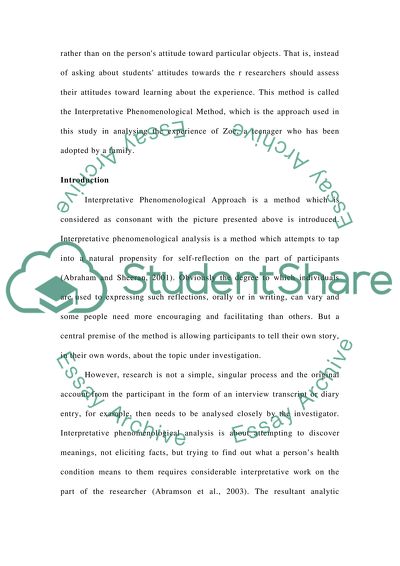Cite this document
(Interpretative Phenomenological Approach Research Paper, n.d.)
Interpretative Phenomenological Approach Research Paper. https://studentshare.org/psychology/1514717-interpretative-phenomenological-approach
Interpretative Phenomenological Approach Research Paper. https://studentshare.org/psychology/1514717-interpretative-phenomenological-approach
(Interpretative Phenomenological Approach Research Paper)
Interpretative Phenomenological Approach Research Paper. https://studentshare.org/psychology/1514717-interpretative-phenomenological-approach.
Interpretative Phenomenological Approach Research Paper. https://studentshare.org/psychology/1514717-interpretative-phenomenological-approach.
“Interpretative Phenomenological Approach Research Paper”. https://studentshare.org/psychology/1514717-interpretative-phenomenological-approach.


